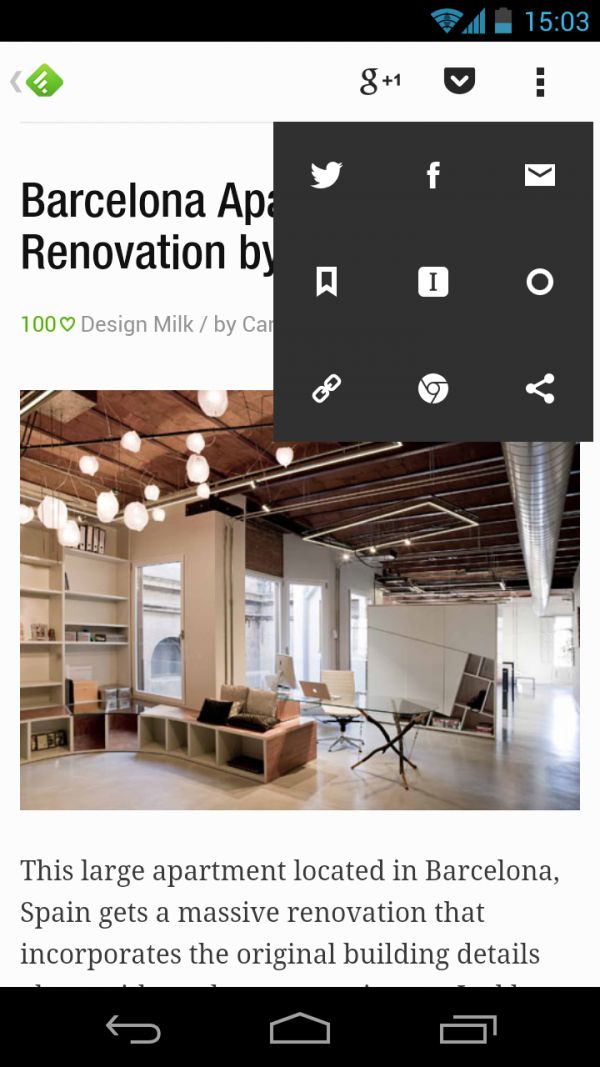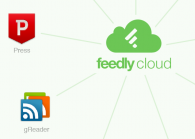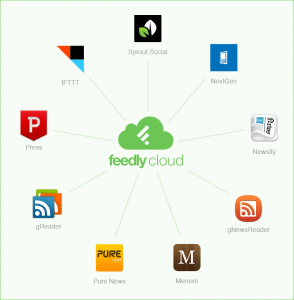aNewDomain.net — Bullet point number five. On March 13, 2013, Google posted a blog entry entitled “A Second Spring of Cleaning,” which was a list of services the search giant planned to either close or depreciate. Buried in the post, just after announcing the end of Google Cloud Connect and before revealing the end of support for Google Voice App for Blackberry, was bullet point number five:
We launched Google Reader in 2005 in an effort to make it easy for people to discover and keep tabs on their favorite websites. While the product has a loyal following, over the years usage has declined. So, on July 1, 2013, we will retire Google Reader.”
And with that, the Technorati flipped out. The tech blogs and news sites lit up with anger, frustration and sadness. Within hours, with the story dominating Techmeme, Feedly took to its own blog and said, essentially, we got this:
Google announced today that they will be shutting down Google Reader. This is something we have been expecting for some time: We have been working on a project called Normandy which is a Feedly clone of the Google Reader API – running on Google App Engine. When Google Reader shuts down, Feedly will seamlessly transition to the Normandy back end. So if you are a Google Reader user and using Feedly, you are covered: the transition will be seamless.”
The post included instructions on how to import your feeds from Google and instructions on how to create a workflow similar to Google Reader.
Before the end of the next day, Feedly was adding servers.

Image credit: Feedly
By the time Google announced the Readerpocalypse, Feedly was already a well-established RSS client. It delivered its client via browser plug-ins for Chrome, Firefox and Safari; as well as well-polished apps for Android and Apple iOS. “We’re obviously pleased that many of Reader’s users have chosen Feedly,” said the company’s CEO and co-founder, Edwin Khodabakchian. “But we’re also gratified to see the retention rates from our newest users.”
The day after Google’s announcement another player threw its hat in the RSS-client ring: news aggregator Digg. The team revealed plans to focus all its resources to shipping a workable RSS client before Google Reader shut down; less than four months away.
On March 15, two days after the spring cleaning blog post, Feedly was the number one news reading client in Apple’s App Store and on Google Play.
While other clients such as NetVibes and NewsBlur were getting some attention, most of the press coverage focused on Feedly and Digg. And it showed. Feedly added half a million users immediately and kept growing from there, while Digg saw nearly 10,000 Google Reader users provide input into what the Digg client should look like.
Yet both faced very different challenges. The Digg team was essentially starting from scratch, needing to build both the client and the back end to support the client, as well as mobile apps. Feedly already had the apps and client in place. Feedly’s biggest challenge was on the back end: complete the move from Google Reader’s back end and API, to its own cloud service. The transition went smoothly, according to Khodabakchian. “The combination of servers, coffee and more servers did the trick.”
As March gave way to April and then May and June, Digg fell mostly silent, understandable given the monumental task of shipping a product in less than 90 days. Feedly, on the other hand, continued to ship updates that improved its speed and usability, including a major revision of its mobile apps.
On the week of June 17, with the shuttering of Google Reader looming, both teams had major announcements. Digg was ready to start inviting users to test the first version of its reader, and would roll it out to all users by June 26. Feedly’s announcement couldn’t be more different. Its back end was stable, complete and ready for all. Its API was running and being used by a number of partners including IFTTT, gReader, and Newsify. It has several million active users.
Image credit: Feedly
On June 21, The Verge posted a hands-on of Digg Reader. In short, after just three months of development, the service, very much still in beta, is what you would expect: it has potential, but is basic and buggy. While the service looks promising and has a proven team behind it, a commenter on the article highlighted the problem Digg Reader and others face:
Looks solid, but Feedly’s clone of the reader API, and subsequent support from every major client that relied on Google Reader for a back end, won me over. Now that it doesn’t require a browser add-on, I don’t see what features this has that would draw me away.”
Therein lies the challenge that Digg, the recently announced reader from AOL, and lesser known clients face: Feedly already has the stability, speed and polish people are looking for. Perhaps most important, it has the attention of everyone, landing at or near the top of most of the recommended Google Reader replacements lists.
And once you try Feedly, it works and it works well. Once there, there isn’t much incentive to leave.
Based in Ann Arbor Michigan, Mike Olsen is a tech enthusiast, freelance writer and a senior contributor to aNewDoman.net. Follow his stream on Google+ and email him at MikeO@aNewDomain.net.














